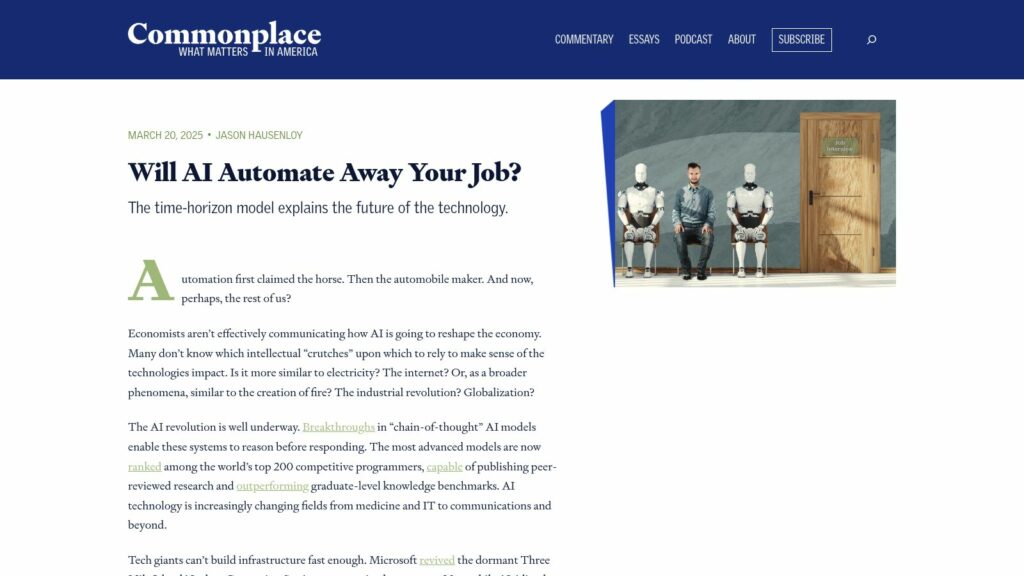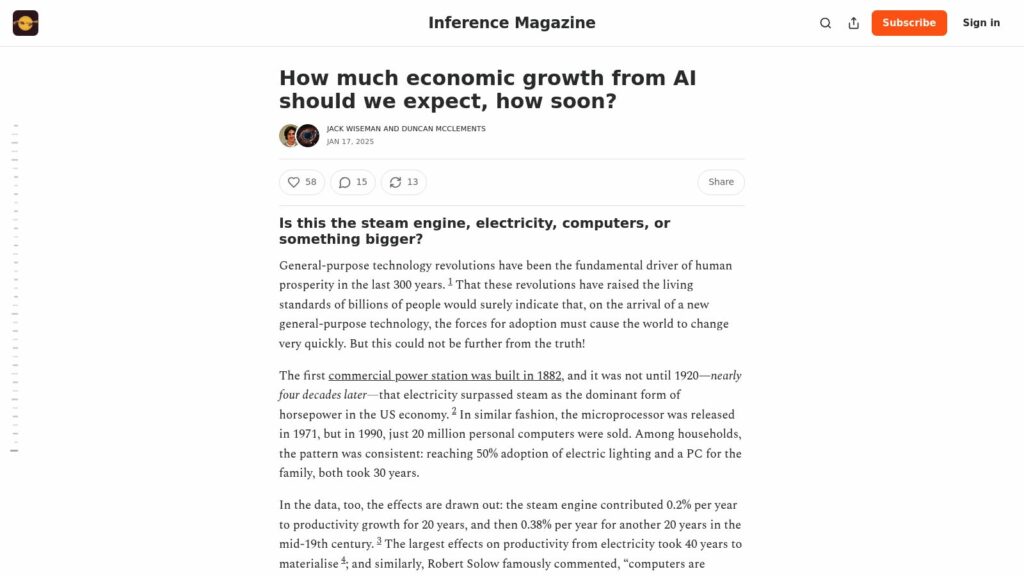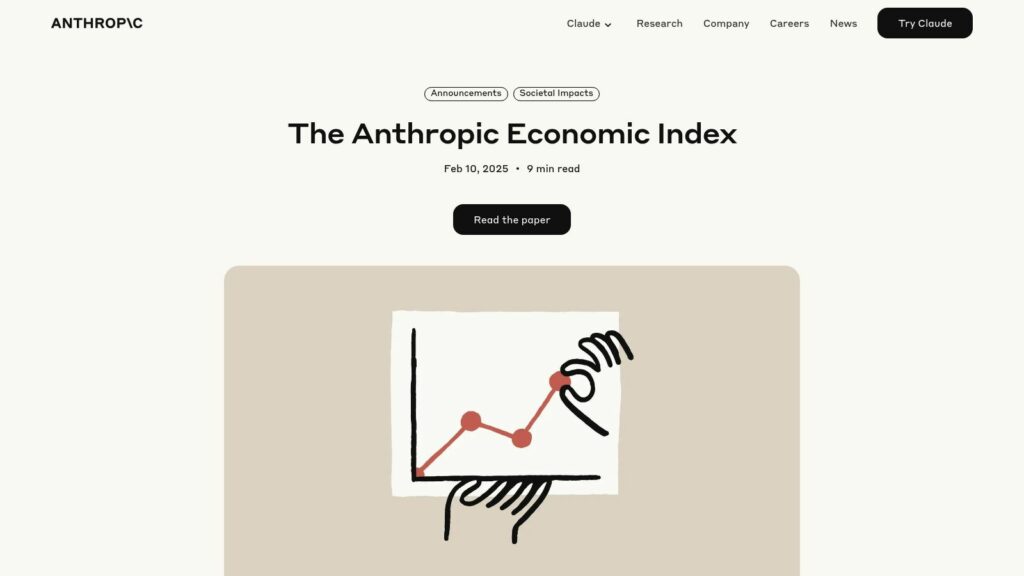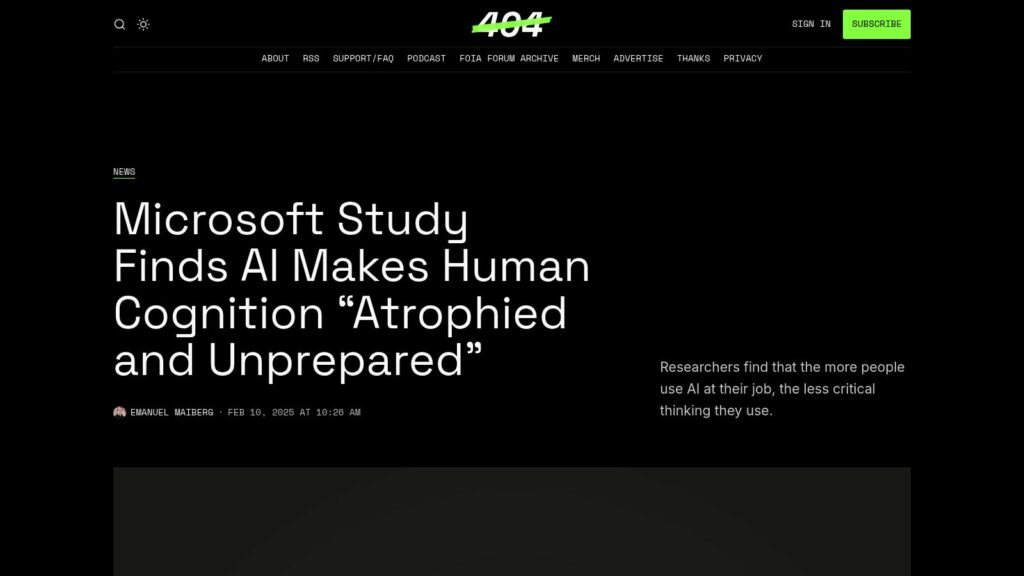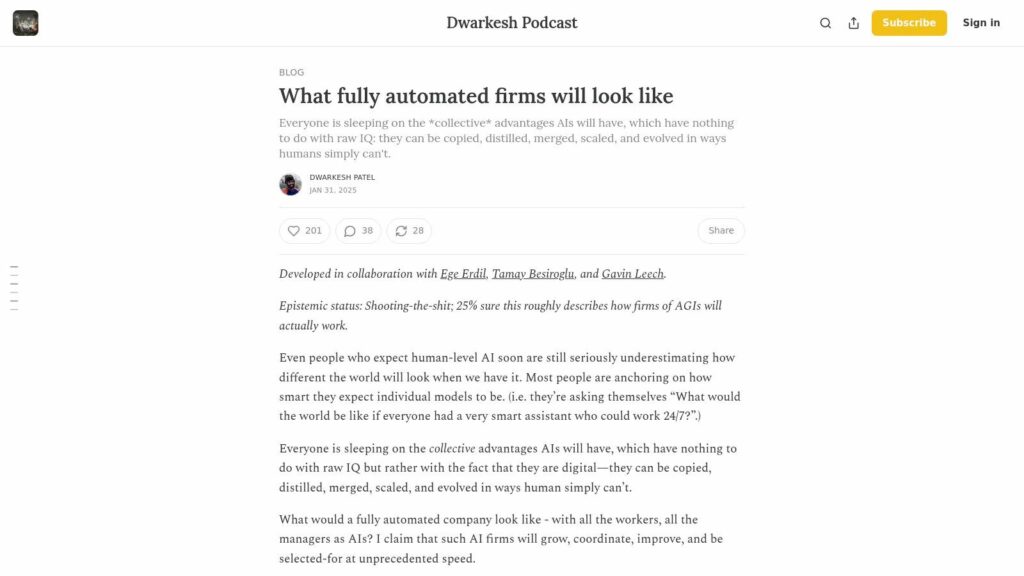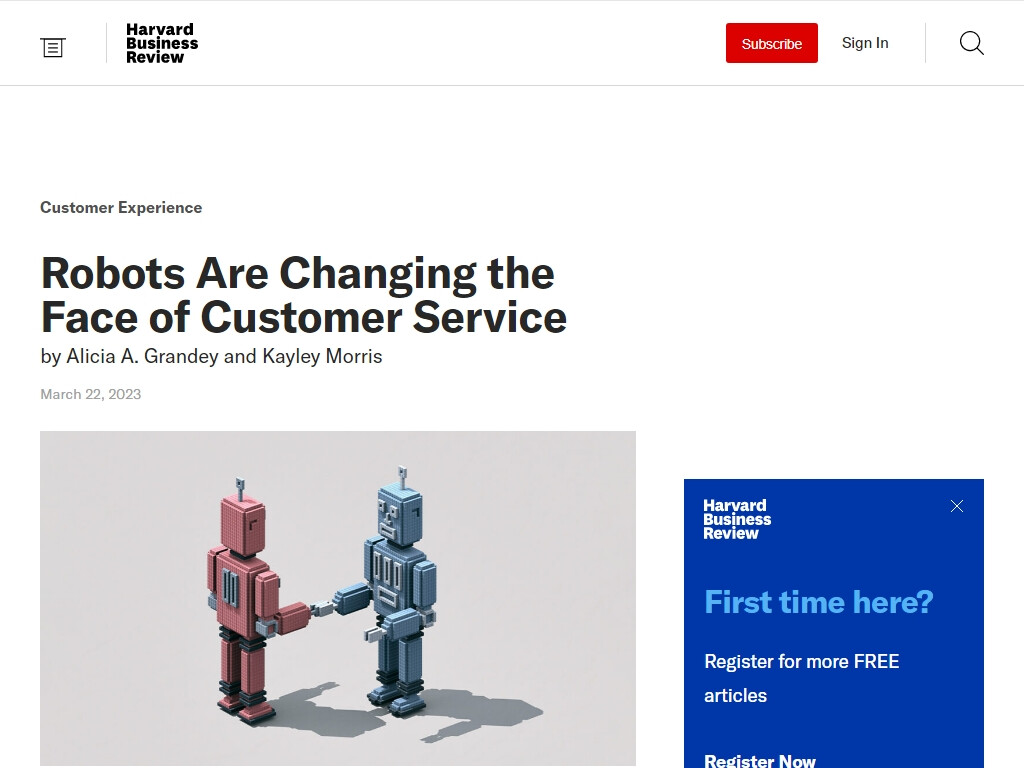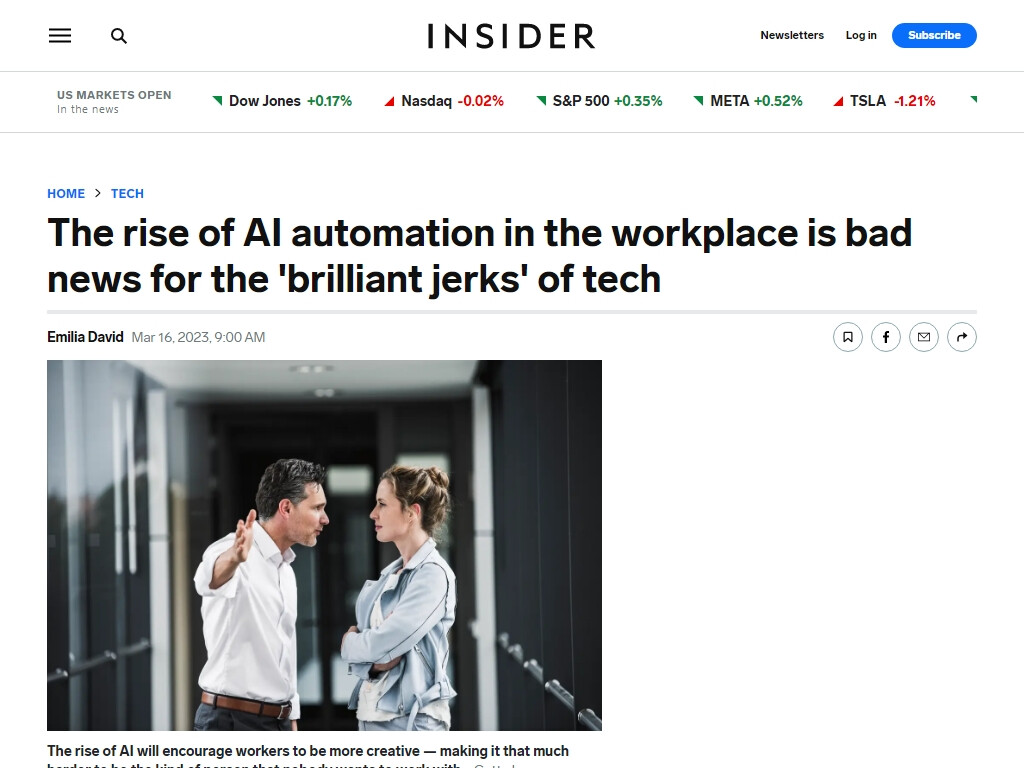Will AI Automate Away Your Job?
AI is reshaping the economy, with jobs at risk of automation depending on task duration and complexity. Short tasks are vulnerable; long-term strategic roles are safer. Younger workers and entry-level positions face the highest automation threat, especially in fields like legal and IT. As AI progresses, even traditional knowledge jobs—once deemed secure—may be overtaken. This evolution raises questions about work's purpose, economic security, and roles in society. Policymakers need to address AI's impact through protective measures, focusing on human involvement and equitable technology access to preserve meaningful work and community values.
https://commonplace.org/2025/03/20/will-ai-automate-away-your-job/
Will AI Automate Away Your Job? Read More »
